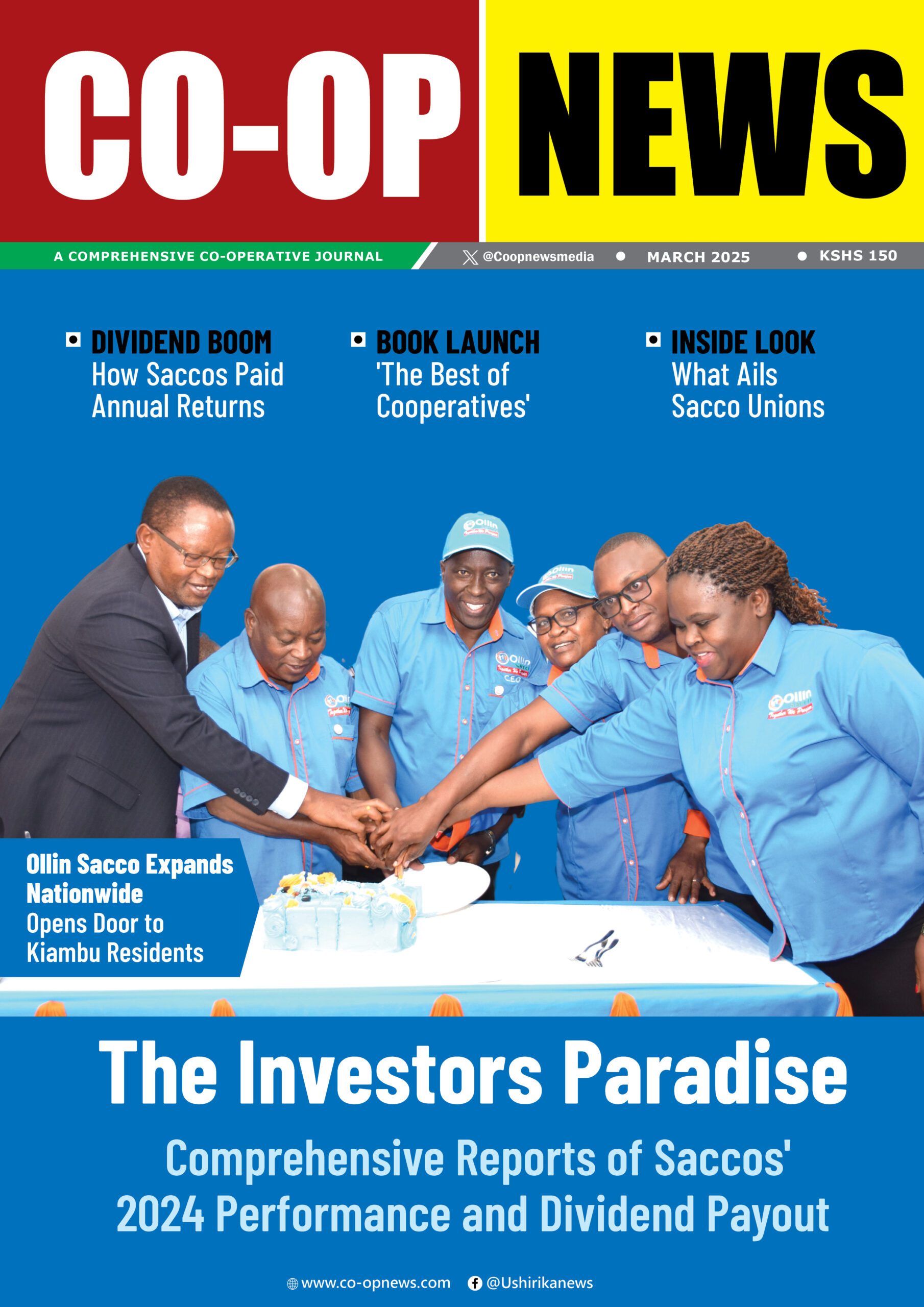The Kenya Union of Savings and Credit Co-operatives Ltd (KUSCCO) has long been a source of pride for the co-operative movement and stands as a bastion of trust and financial stability, serving as a crucial pillar for the movement.
However, KUSCCO is now turning into another example of corporate greed and clever deceit. One must admire their boldness: an institution designed to protect people’s hard-earned savings has been undermined by the very leaders who were supposed to safeguard it.
With the arrest of former union officials, we are left pondering, “How did this happen?” and, more critically, “How can we extricate ourselves from this mess?”
Let’s be honest: the PwC forensic audit reads like an intricate scandal, resembling the plot of a heist film. We are confronted with instances of forged signatures from deceased individuals—yes, an auditor who has passed away is said to have signed off on manipulated accounts.
There were fictitious profits, questionable contracts awarded to companies owned by those in power, and withdrawals so dubious that even illusionists would be awed. The level of creativity displayed is both shocking and, one might even say, somewhat admirable.
These architects of deception constructed an empire of falsehoods, siphoning off billions while merrily heading to the bank—likely to multiple banks, to cover their tracks.
While this appears to be a KUSCCO issue, the reality is that this scandal strikes at the very heart of Kenya’s co-operative movement, an essential component of the economy. Co-operatives in Kenya focus on empowering communities, creating wealth, and promoting social equity. They provide accessible credit to millions, especially in rural areas where traditional banks seldom venture. They aid small-scale entrepreneurs, stimulate local economies, and encourage fair wealth distribution. In essence, co-operatives are the financial backbone of this nation.
According to a PwC audit, KUSCCO was deeply entrenched in corruption from 2018 to 2023. A staggering Sh206 million seemingly vanished, phantom commissions were reportedly disbursed, and Sh107.3 million was given as “advance payments” in some of the most dubious deals imaginable.
Former union staff and directors didn’t merely mismanage funds—they executed a masterclass in fraud. However, they did not act in isolation. The corruption is extensive, and every accomplice must be identified and appropriately sanctioned.
This is where the Assets Recovery Agency steps in. They must take decisive action—trace the funds, freeze accounts, seize assets, and auction off all unlawfully acquired properties to recover as much as possible. Even if we can only recuperate a fraction of the Sh13.3 billion lost, it’s better than allowing them to keep it.
Yet, we find ourselves as witnesses to this decay, all due to a handful of greedy individuals who figured out how to exploit the system. The ramifications are devastating—not only financially but also psychologically. This scandal undermines the very foundation of trust that co-operatives rely on. It’s akin to discovering that your trusted family doctor is secretly a fraudster. How can one ever feel secure again?
We must see prompt legal prosecution, not just the usual performance we’ve come to expect in Kenya. There should be no stone left unturned. If found guilty, the suspects must endure the full consequences of the law. Let’s witness prison sentences, asset confiscation, and permanent bans from holding any public or corporate position. Anything less would be an affront to the members whose savings have been pillaged.
Nevertheless, mere punishment will not suffice. We must address the systemic issues. Limiting KUSCCO’s scope to advocacy and capacity building is a positive initial step, but it falls short. The entire governance framework requires a comprehensive overhaul. We need robust checks and balances, transparent financial reporting, and mandatory independent audits. The fact that previous audits were approved by someone who is deceased is evidence sufficient to suggest that the current systems are a bad joke.
Additionally, we must revise the legal structure governing SACCOs and co-operatives. There should be stricter penalties for fraudulent activities, clearer guidelines on conflicts of interest, and enhanced authority for regulatory bodies like the Sacco Societies Regulatory Authority (SASRA). Regulations are only effective if enforced by diligent individuals. If the oversight agencies lack funding or accountability, we’re merely making trivial adjustments to an already sinking ship. SASRA and other regulatory organizations must be empowered, independent, and relentless in their quest for justice.
Lastly, public awareness is crucial. Because co-operatives are predicated on trust and active participation, members must become more vigilant and well-informed. They need to understand their rights to demand transparency and hold leaders responsible.
The co-operative movement is too significant to allow greed and corruption to dismantle it. If we do not advocate for its integrity, we will forfeit more than just billions; we will lose trust, hope, and the possibilities of shared prosperity that co-operatives have historically represented.





